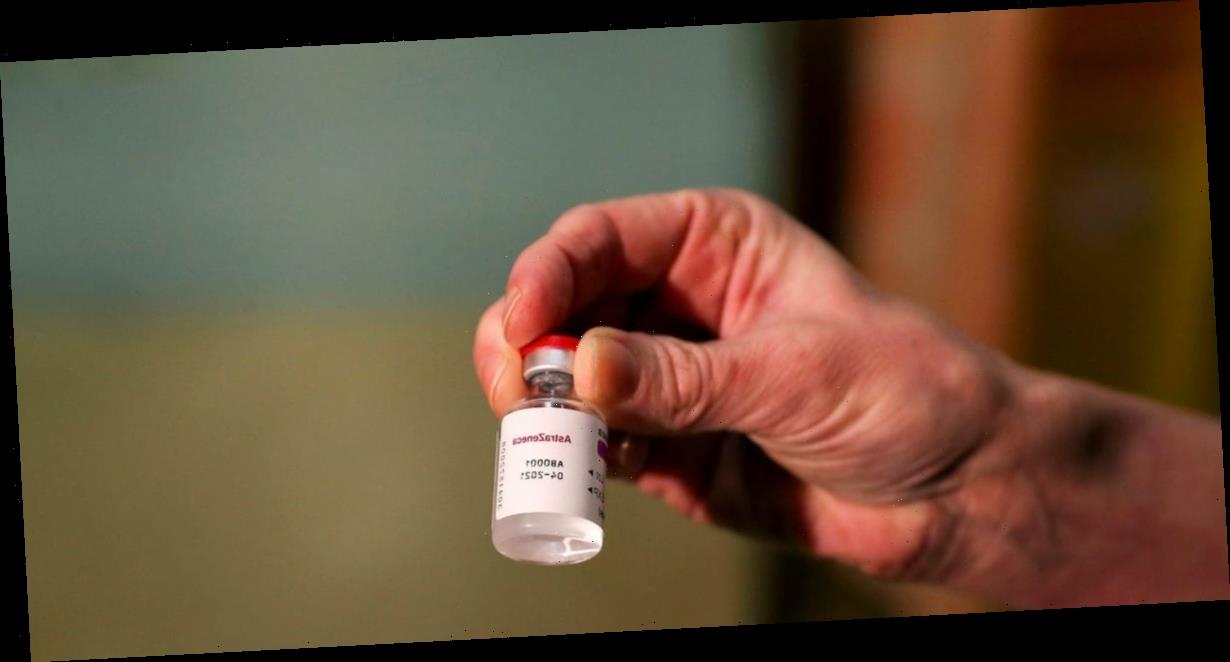- Neil Astles, 59, died from a blood clot after getting his first dose of the AstraZeneca vaccine.
- His sister, Dr Alison Astles, urged others keeping taking it, saying he was “extraordinarily unlucky.”
- The UK withdrew the shot’s use in under-30s on Wednesday, out of what it called extreme caution.
- See more stories on Insider’s business page.
The sister of a man who died from a blood clot after receiving the AstraZeneca COVID-19 vaccine encouraged other people to continue taking it.
Dr Alison Astles told The Daily Telegraph’s Bill Gardner and Sarah Knapton that her family still urges people to take the shot, arguing that its effectiveness against the coronavirus far outweighs the risks.
Neil Astles, 59, got a single dose of the vaccine on March 17, the Telegraph reported. He died on April 4, around three weeks later. The Telegraph published a photo with his story:
The interview with Dr Astles was published hours after the European regulator announced that potentially fatal blood clots can be an extremely rare side effect of the AstraZeneca vaccine and cerebral blood clots, and UK officials withdrew its use in under-30s.
Astles, a pharmacist and subject leader at the University of Huddersfield, said her brother had been “extraordinarily unlucky,” and urged people to continue taking the shot if offered it.
“We trust the process, we trust the regulator, and despite what has happened to our family we don’t want people to be scared off. That’s the message we want to get across,” she said.
Astles said her brother, a local government lawyer in northwest England, had generally been fit and healthy.
A week after his first vaccine dose, the Telegraph reported that he displayed some characteristic symptoms of blood clots, worsening headaches and loss of vision in his right eye.
Mr. Astles went to the emergency room after is symptoms got “a great deal worse.” After 10 days of worsening symptoms, Mr. Astles died on April 4, almost three weeks after receiving the vaccine, the Telegraph reported.
“There was a strong suspicion right from the very beginning that it was the Astra vaccine because of his very low platelet levels,” she said.
She said that “emotionally,” the family were furious at losing her brother, but intellectually, “there’s nothing in our minds to be really furious about. My brother was just extraordinarily unlucky.”
“Despite what has happened to our family, we strongly believe that everyone should go for their first and second doses of the AstraZeneca vaccine,” Astles told the Telegraph.
“If we all have the vaccine, a few of us might have a blood clot but the evidence is that fewer people will die.”
The Telegraph reported that Astles’ death is too recent for the coroner — an official who investigates unusual deaths — to have produced a formal cause of death for him.
Dr. Astles said that her brother’s diagnosis was a “cerebral sinus thrombosis and subarachnoid hemorrhage” with “low platelets and extraordinarily high d-dimer.”
Low platelets alongside the cerebral blood clots is one of the unusual side effect of the AstraZeneca vaccine, the European Medicines Agency said on Wednesday.
If the clot is caught early, the symptoms can often be treated with anti-clotting medication.
Symptoms of blood clots include: shortness of breath, severe and persistent headaches, persistent pain in the abdomen, and neurological symptoms, including blurred vision, Insider’s Andrea Mitchelson reported on Wednesday.
Experts argue that receiving the AstraZeneca shot is safer than everyday activities like getting on a plane, Insider’s Aria Bendix, Andrew Dunn, and Hilary Brueck reported on Wednesday.
The UK has advised that people under the age of 30 be given an alternative to the AstraZeneca vaccine, as the risk-to-benefit tradeoff is “more finely balanced” in younger people, the Joint Committee on Vaccines and Immunisation said on Wednesday.
Get the latest coronavirus business & economic impact analysis from Business Insider Intelligence on how COVID-19 is affecting industries.
Source: Read Full Article
